Discover Future of Agriculture
Future of Agriculture

Future of Agriculture
Author: Tim Hammerich
Subscribed: 2,577Played: 70,589Subscribe
Share
© Copyright 2019 All Rights Reserved Future of Agriculture
Description
This show explores the people, companies, and ideas shaping the future of the agriculture industry. Every week, Tim Hammerich talks to the farmers, founders, innovators and investors to share stories of agtech, sustainability, resiliency and the future of food.
We believe innovation is an important part of the future of agriculture, and real change comes from collaboration between scientists, entrepreneurs and farmers. Lead with optimism, but also bring data!
For more details on the guests featured on this show, visit the blog at www.FutureOfAgriculture.com.
We believe innovation is an important part of the future of agriculture, and real change comes from collaboration between scientists, entrepreneurs and farmers. Lead with optimism, but also bring data!
For more details on the guests featured on this show, visit the blog at www.FutureOfAgriculture.com.
463 Episodes
Reverse
Rodale Institute: https://rodaleinstitute.org/"History of the Rodale Institute" on YouTube: https://youtu.be/nxSYYUMJ6F8Today we’re talking to Dr. Andrew Smith of the Rodale Institute. I originally wanted to bring Andrew onto the show to talk about the history of the Rodale Institute and it’s contribution to agricultural research. Rodale Institute is a nonprofit growing the organic movement through rigorous, solutions-based research, farmer training, and consumer education. But I ended up focusing more on questions related to tillage, organic claims and realities, and what they’re learning from their long term farming systems trials.
Wootzano: https://www.wootzano.com/Atif Syed on LinkedIn: https://www.linkedin.com/in/syedatif/ Via Atif's LinkedIn post"I never thought I’d have to write this.Wootzano, the British robotics company I built from nothing, is at risk of being shut down not because of commercial failure, but because of a procedural trap.Yesterday, after a petition by Innovate UK Loans Limited (UKRI), the Court issued an order that instantly froze Wootzano’s bank accounts.That created an impossible situation:In Scotland, a company cannot speak in court without a solicitor.A solicitor must lodge our appeal.But with accounts frozen, we cannot pay a solicitor."And if we don’t file the appeal by 28 November, liquidation becomes final.A functioning deep-tech company can be silenced without ever being heard.This is not how innovation should die.Wootzano took an £838k Innovate UK Innovation Loan, a government lender, in 2022, a product marketed as patient, flexible capital for high-growth innovators. Flexibility is even built into the contract.But when our funded subsystem didn’t reach commercialisation, no flexibility was offered, and the matter went straight down the standard debt route.If this can happen to us, it can happen to any of the 240+ UK companies on this loan programme.Wootzano is:🇬🇧 The only British ag-robotics company for post-harvest to ship commercial robots to Japan and various other countries 🤖 Active in 6 countries 🔧 Supporting UK engineers, suppliers, and farmers 📈 Delivering £537m+ worth of contracts 🌍 Representing Britain on global trade missions 💡 Backed by diverse shareholders, from farmers to technologists, who believed the UK could lead in roboticsLosing this to a procedural freeze, not a business failure, will destroy trust in British deep-tech nationally and internationally.We need to get a solicitor initially to file the appeal before the deadline.Appeal deadline: 28 NovemberEvery hour mattersEven a share of this post helps.I have spent years building this with an extraordinary team.I am not giving up, but right now, the company is legally unable to act without help.If you believe in fairness, due process, and protecting UK innovation, please support or share this widely.
AquaSpy: https://aquaspy.com/ On the show today is Bruce Moeller, before buying AquaSpy in 2009 Bruce was already a serial entrepreneur, a former president of a publicly traded company, and an author of two books. He successfully grew and exited Culture Works and Drive Cam, which was an early dash cam company. He decided to apply the idea they used at Drive Cam to use technology to capture what hadn’t been easily recorded previously, to agriculture. Specifically in-situ monitoring of soil conditions around a plant’s roots. So Bruce and his team bought AquaSpy, a company out of Adelaide, Australia in 2009, so really early in this part of agtech, and they’ve been operating it ever since. Bruce is not from an ag background, but as you’ll hear he looked at this as more of a feature than a bug. To describe AquaSpy, Bruce uses the analogy of the ecosystem of the rhizosphere, this area of soil around the roots of having it’s own weather. And AquaSpy being a tool to check the weather down there, which has all sorts of applications, especially with their latest feature, which allows them to also measure in-situ nitrogen in real time. We talk about how AquaSpy is approaching their technology and the problems it solves for farmers, and we talk about how AI is enabling them to move in a more predictive direction with the data they’re collecting.
Five Questions About The Ag Robotics Revolution (FIRA 2024 Reflections)The Next Great Ag Equipment Brand will be Autonomy-First with Charlie Andersen of BurroAutonomous Sprayers with Gary Thompson of GUSSMaking Spot Spray Technology Accessible With Jaisimha Rao of Niqo RoboticsThe Path To Superhuman Farming with Curtis Garner and Brent Shedd of Verdant RoboticsCategory Design with Dan SchultzTHE BIG REGRESSION (by Jason Fried on X) I attended FIRA USA a few months ago, which is a great event focused on agricultural robots and autonomous solutions. Like I did last year, I wanted to share some reflections on the current state of the ag robotics sector. Today you'll hear from AgTonomy CEO Tim Bucher and Ecorobotix CEO Dominique Mégret on today’s episode about how autonomy in agriculture is much more than a way to reduce labor needs. It’s about re-thinking what it means to farm better. And while these solutions are finding their footing, we’re still a long way from widespread adoption. We talk about both the opportunities and the challenges of ag robotics and automation on this episode!
Podcast episodes featured:Where Will Demand Come From? | Damian Mason PodcastWill China’s cheaper tractors disrupt ag equipment? With Lachlan Monsbourgh | Agtech - So What?Reducing Weeds and Pests with Regenerative Mulching Systems with Erwin Westers | The Regenerative Agriculture PodcastField Intelligence: Elliott Grant on AI in Agriculture | Fresh Takes on TechAg's Efficiency Preoccupation Problem with Andrew Hoelscher of Farm Strategy | The PaceSetter PodcastRethinking Food and Ag Investments - The Quiet Trends Reshaping The Industry | The Modern AcreGenetic Progress Made Simple: Feed Intake, IVF, and AI Tools for Cattle | Farm4ProfitFor the third year in a row, I contacted the hosts of seven different ag podcasts to see if they would identify one of their episodes from this past year that they think is most indicative of where the agriculture industry is headed in the future.Once again, they all came through and I’m excited to share clips with you from these seven podcasters. Some of the themes are similar to last year like genetics and AI. Which I think is a good sign. If the themes changed every year it would probably be an indication that were wrong. Haha. But there are new themes that I think you will definitely find interesting. Themes we will be discussing today include the struggling farm economy, the growth of foreign agriculture equipment, the rise of systems-based thinking and regenerative approaches on farm, where artificial intelligence is making an impact in agtech, Food as health and what that means for agriculture and how genetics is changing the game in cattle and really every area of agriculture.Other Episodes Referenced:Where is Agriculture Headed in 2025 and Beyond? Insights from 7 Different Ag PodcastsFoA...
FieldLark AI: https://fieldlark.ai/Advancing Eco Agriculture: https://advancingecoag.com/Regenerative Agriculture Podcast: https://advancingecoag.com/podcasts/FoA 386: Challenging Assumptions About Regenerative Agriculture With John KempfToday we’re joined by John Kempf, founder of Advancing Eco Agriculture. John first joined me on the podcast two years ago for episode 386 titled “Challenging Assumptions About Regenerative Agriculture”. That episode was widely shared and provided me with a ton of interesting feedback. So I was eager to bring John back on especially to discuss this new AI regenerative agronomist tool they’ve launched which is called FieldLark AI. As I hoped, John and I also get somewhat philosophical about technology use and ethics, and we talk about a separate but similar project he has taken on of building a digital clone of his knowledge and expertise. We talk about what that process looked like and how he’s using Digital Clone John in his daily life. And you agronomy nerds definitely will want to stick around to the end because we talk about some fascinating insights about nitrogen that John and the AEA team have been helping their customers take advantage of. First though, let me read some background here about John because I think it’s fascinating and it really informs his perspective and his focus with AEA. John Kempf is an entrepreneur, speaker, podcast host, leading crop health consultant, and designer of innovative soil and plant management systems. He founded Advancing Eco Agriculture in 2006 and serves as Chief Vision Officer and Executive Board Chairman.In the early 2000s, Amish farmer John Kempf was on a quest to save his family’s fruit and vegetable farm in Northeast Ohio. After years of intensive pesticide use, pest and disease pressure was unmanageable and unaffected by continued chemical applications. This resulted in an almost total loss three years in a row. After years of extensive agronomic research, first-hand growing experience, and close mentorship John found new crop management methods. The practices he discovered and the products he created were the beginnings of Advancing Eco Agriculture.
Burro website: https://burro.ai/FoA 271: Ag Robotics Roundtable: https://futureofagriculture.com/episode/foa-271-ag-robotics-roundtableI’m really excited to share today’s episode with you. Charlie Andersen is one of the most impressive and intelligent founders that I’ve had the chance to speak with. I can remember being blown away with him when he was a part of our Ag Robotics Roundtable which became episode 271 of this podcast clear back in 2021. Charlie co-founded Burro in 2017 and today they have over 600 systems running in the field, which is arguably the largest fleet of mobile robots running in an outdoor agricultural setting today. If you’ve never seen a Burro before, think about like a flat bed cart, for lack of better term. They are 5hp to 20hp autonomous vehicles that go up to 6.5 mph in speed. They can tow, haul things, mow, spray, and patrol all autonomously. They even can be used with a docking station to recharge themselves to run continuously. They are very cool, and uniquely designed to augment human labor rather than trying to fully replace it. Charlie grew up on a working fruit and vegetable farm and says he was obsessed with machinery as a kid. He went on to get an MBA at Harvard Business School and he founded Burro after working for CNH, where he reported to the head of the North American operating unit and worked on special projects across sales, marketing, manufacturing, distribution, and autonomy M&A.
Today’s episode is another installment in our Tech-Enabled Advisor series. The idea here is to better understand agtech through the lens of the BUYER and USER of that technology rather than just the entrepreneurs or investors behind it. I’ve received some super positive feedback about the return of this series. By talking to the buyers rather than the sellers of the tech, we got an unfiltered introduction to the technology and more importantly got to see HOW its used and the VALUE that it provides. To do this, I partner with a company and together we invite one of their customers onto the show. The catch is that they’re not allowed to script these individuals or dictate what to say or edit it after it is recorded - it has to be real and unfiltered. So today’s episode featuring Todd Kirwan of Apex Precision Agriculture is produced in partnership with AgWorld. And I’m really excited to be partnering with them again, as they were a part of the last time I did this tech-enabled advisor series. But for anyone who might not be familiar, Agworld has been operating since 2009, developed by and for growers & agronomists, and is independently owned. The Agworld ecosystem digitally connects growers with their staff, agronomist, contactor, ag retailer and anyone else that is involved in the farming process. The tool is set up to enable collaboration in the digital farming process, so farmers can maximise financial and crop performance. With Agworld you can plan your crop, mitigate your risks, and improve your profitability. And you’re going to get a great illustration of what that looks like on the ground and in practice in today’s episode with Todd Kirwan. Todd and I discuss what types of cultural changes need to happen in a farming operation to get the most out of technology, where things go wrong in the attempts to get the most value out of farm data, why he believes the challenging farm economy makes tools like AgWorld even more critical and some of the changes he sees happening in the future of agriculture. A little background on Todd: Todd Kirwan is the founder of Apex Precision Agriculture, a consultancy focused on helping growers and agribusinesses transform their operational data into their most profitable asset.With over 25 years in large-scale production agriculture, his career has been dedicated to bridging the gap between field-level agronomy and high-level financial strategy. Over that time, he’s seen the industry from every angle, from moving pipe on the family farm to directing operations for a multi-state farming enterprise. Through his experiences in farm management, he recognized a critical need for a partner who understands not just the data, but the human dynamics of implementing change. And that led him to starting Apex Precision Agriculture. Todd grew up working in his family’s farming operation and then started his own custom applicator business. That led him into farm management and leadership for a rapidly expanding farming company called Lance Funk Farms. He then stayed on after Lance Funk sold to AgReserves, which is the agricultural company owned by the LDS church. It was that time at Lance Funk Farms, when they were hyper focused on growth that Todd really embraced how technology can improve a farming operation.
"The Wizard and the Prophet" by Charles C. MannRhishi Pethe's "Software is Feeding the World" Newsletter "In 1968, the year a USAID official coined the term 'Green Revolution', Norman Borlaug gave a victory lap speech at a wheat meeting in Australia. Twenty years before, he said, Mexican farmers had reaped about 760 pounds of wheat from every acre planted. Now that figure had risen to almost 2,500 pounds per acre, triple the harvest from the same land. The same thing was happening in India. He said the first green revolution wheat had been tested there just in 1964-1965 growing season. It had been so successful that the government had tested it on 7,000 acres the next year, and now it was covering almost 7 million acres. The same thing was happening in Pakistan, and this didn't even count the Green Revolution rice, also short and disease resistant, which was spreading across Asia." That is an excerpt from the book we'll be talking about here today. "The Wizard and the Prophet" by Charles C. Mann. The subtitle is "two remarkable scientists and they're dueling visions to shape tomorrow's world." One of those scientists, "the wizard", was Norman Borlaug: the father of the green revolution. Today's episode focuses on Borlaug's life and contributions to improving crop productivity in some of the most impoverished areas of the world. This episode is co-hosted by Tim Hammerich and Rhishi Pethe.
Erin Silva, Ph.D. https://cias.wisc.edu/directory/17158/FoA 280: Organic Farming Myths and Realities With Erin SilvaI wanted to invite Erin Silva back on the show to hear about her continued work with farmers that are going down the path of organic AND regenerative. On the surface, those two farming approaches are easy to get behind: let’s try to reduce our dependence on synthetic chemistry and let’s try to build soil health over time while still farming intensively and profitably. But in practice, there are tradeoffs. To promote more living roots on the soil through cover crops, as one example, farmers need a way to terminate those cover crops and using herbicides for that is really really helpful. So I’m intrigued about how farmers are making these systems work and how scientists like Erin our doing the critical research to understand how these practices can work on more acres for more farmers. So that is what today’s episode is all about, and for context I’ll give you a brief bio on our guest. Dr. Erin Silva is an Associate Professor and State Extension Specialist in Organic and Sustainable Cropping Systems in the Department of Plant Pathology as well as the Director for the Center for Integrated Agricultural Systems in the College of Agricultural and Life Sciences at UW-Madison. Her research influences the strong organic sector that contributes to Wisconsin’s agricultural economy, with Wisconsin second only to California as the state with the greatest number of organic farms. In continued support of these farms and the organic sector within the state, nation, and globally, her research and scholarly contributions continue to be directed in the broad area of the biology and agroecology of organic crop management, with emphases on cover crops, soil health, and genotype/ environment interactions. Dr Silva earned her Ph.D. in Horticulture at Washington State University.
Todd's Profile on Farm Progress: https://www.farmprogress.com/author/todd-fitchetteTodd's LinkedIn: https://www.linkedin.com/in/toddfitchette/Todd Fitchette is the editor of Western Farm Press which is part of the Farm Progress Group. Todd has been there covering relevant agricultural issues for farmers in the West since 2013. His journalism career began in 1990 with community newspapers in California, where he earned First Place honors from the National Newspaper Association for his photography.His career progressed to agriculture journalism where he reported on livestock and specialty crop issues in the West. This work includes covering subjects relevant to large herd dairy operations, specialty crops including fruits, nuts, vegetables and niche operations. He also covers public policy and water issues affecting western farmers. He has repeatedly been honored for his agricultural journalism by the Fresno County Farm Bureau in California. He currently lives in Yuma, Arizona.I’ve been reading articles from Todd for several years now. I have always appreciated his ability to stay on top of the issues affecting agriculture in the west and to distill information down into a format that is accessible and digestible. I’ve run into him at events like the Almond Conference and FIRA USA and he always seems to be on-site wherever things are happening with the crops that matter most to the western United States.I wanted to invite Todd onto the show to get his perspective as a journalist and someone who is covering these issues. I also wanted to learn more about storytelling and sharing information in agriculture. He shares openly about how he thinks about his work and how he goes about covering so many issues for his readers.
I’m really fascinated by today’s topic of looking into pest and disease outbreaks in animal agriculture from an economist's point of view. Our guest, Jada Thompson, is going to discuss the economics behind prevention of these biosecurity issues,the economic impact when outbreaks do occur, some of the tradeoffs in the difficult decisions that need to be made, what that means for producers and consumers, and a whole lot more. To give you a little bit of background on Jada: Dr. Jada Thompson is an associate professor in the Department of Agricultural Economics and Agribusiness at the University of Arkansas. She worked in private industry for a few years managing customer insights and pricing analytics before earning her Ph.D. in Agricultural Economics from Colorado State University in 2016. Dr. Thompson’s research primarily focuses on animal health and livestock economics with emphasis on the poultry industry. She also came very highly recommended from Dr. Trey Malone who was on this show last year on episode 434. So thank you Trey for the referral to Jada.
Lumo: https://lumo.ag/Great episode for you today with Devon Wright of Lumo. The Lumo story is really interesting for a number of reasons. One of which is that they have managed to take on venture capital, but still remain very focused on serving a very specific market within agriculture. As you’ll hear they have resisted the temptation that has led to the demise of so many agtech companies to try to be for everyone and rapidly expand to as many acres as possible. But Lumo is focused exclusively on wine grapes, and for a long time only wine grapes in the areas of Sonoma and Napa Counties in California. Also, Devon is just an interesting dude. I’ll read his bio here to give you a sense of what I’m talking about: Devon Wright is an entrepreneur, investor, and the co-founder and CEO of Lumo, where he and his team are on a mission to massively improve food and freshwater security by giving farmers the best irrigation system in the world. He sold his first startup, a local marketing platform for restaurants, to Yelp in 2017. When he’s not helping growers dial in their irrigation precision or providing advice to other early-stage startups, he’s spending time with his wife and three young daughters on their little farm, or writing cheesy sci-fi romance.
William Ridley, Ph.D. https://ace.illinois.edu/directory/wridleyWilliam Ridley, Ph.D. on Google Scholar: https://scholar.google.com/citations?user=Qjox4QIAAAAJ&hl=enToday’s episode is timely and thought provoking in my opinion. The farm economy is struggling again this year, and while there’s no one cause for all of that struggle, exports certainly play a role. A major role. I’m very pleased to welcome Dr. Bill Ridley onto the show. Bill is an international economist studying global markets and trade policy at the University of Illinois, Urbana-Champaign. His research explores pressing market and policy issues relating to international agricultural trade, economic integration, trade disputes, and the implications of globalization for the environment and natural resource use.I wanted to bring Bill on the show to ask about the implications of tariffs and trade disputes for the farm economy, his perspective on the current trade relationship with China, his work on the virtual water trade which is an interesting concept measuring how much domestic water gets used to export food out of the country, and his thoughts on the path forward from here. If you’re hoping for a rosey picture of how this all plays out, I’ll warn you now - you may be disappointed. But it’s certainly an important topic to be thinking deeply about how this impacts your business for all of us in agriculture.
Follow Chris on X: https://x.com/reggajFollow Chris on Instagram: https://www.instagram.com/bluefoxfarmListen to Chris' podcast "Not Only Farmers": https://open.spotify.com/show/12YRGbk9IYMh4gbR0pTkEh?si=d14c005214ab418dChris Jagger on episode 129 of the "Farmer to Farmer" Podcast: https://www.youtube.com/watch?v=nBplMcnNdO4Chris Jagger and his wife Melanie Kuegler have been running Blue Fox Farm in southern Oregon since 2004. They started with 1 acre of mixed vegetable production, scaled to 45 acres, and now have scaled back to around 7 acres in vegetables. Besides farming, Chris has dipped his toes into many other realms of agriculture- consulting for other farms, running an ag supply business, starting a soil-based ag conference, and now looking at new ways to build the regional supply chain in the Pacific Northwest. The main goal in all of these endeavors is building community and feeding people.I’ve known Chris from Twitter for years now, and he has some bold and innovative ideas about the industry, but his perspective is still also very grounded in the practicality of running a farm business. We discuss finding the right scale as a first generation farmer, the decision to sell retail vs wholesale, what it takes to build regional food systems, what technology is needed on smaller scale farms, and more.
Sentera: https://sentera.com/Chandler Coop: https://www.chandlercoop.com/Today’s episode is another installment in our Tech-Enabled Advisor series. The idea here is to better understand agtech through the lens of the BUYER and USER of that technology rather than just the entrepreneurs or investors behind it. I’ve received some super positive feedback about the return of this series. By talking to the buyers rather than the sellers of the tech, we got an unfiltered introduction to the technology and more importantly got to see HOW its used and the VALUE that it provides. To do this, I partner with a company and together we invite one of their customers onto the show. The catch is that they’re not allowed to script these individuals or dictate what to say or edit it after it is recorded - it has to be real and unfiltered. So today’s episode featuring Nick Einck of Chandler Coop is produced in partnership with Sentera. Sentera is a leading provider of remote imagery solutions. Their industry-leading cameras are compatible with most major drone platforms and enable farmers and crop scouts to efficiently capture high-resolution data. Their capabilities and FieldAgent software tools help farmers and agronomists assess plant-level health, identify stressors, and take action. Also their customized herbicide prescription, SMARTSCRIPT™ Weeds, can be delivered to sprayers with individual nozzle control.So drones equipped with Sentera technology fly over fields at high speeds and generate high-resolution images. The images are processed using proprietary deep learning algorithms to identify the exact location of specific weeds and generate a weed map. This map becomes a targeted prescription for how much product a farmer needs to load into their sprayer, saving money and minimizing waste. This past May, John Deere announced they were acquiring Sentera.So I’m very excited to partner with them for this episode, which is a fantastic deep dive into how innovative technology like this combined with something like See-and-Spray really changes the game.Some background on Nick before we dive in: Nick Einck is the Director of Agronomy at Chandler Co-op, a farmer-owned cooperative serving more than 900 customers and providing agronomic services across over 100,000 acres in southwest Minnesota. He began his career at Chandler as an intern and seed manager before spending nearly a decade with Monsanto and Bayer, gaining deep expertise in agronomy, product development, and grower engagement across the Midwest. Nick returned to Chandler in October 2024, bringing both retail and industry experience to help advance the co-op’s agronomic strategy. Today, he leads a multi-location agronomy team focused on leveraging tech-enabled tools—like SmartScript™—to help growers make faster, more informed decisions and drive greater return from every acre.
Ambrook: https://ambrook.com/Offrange: https://ambrook.com/offrange"Not Boring" Founder's Letter: https://www.notboring.co/p/america-the-beautifulMackenzie Burnett: On Agriculture and American Progress on Rhishi Pethe's "Software is Feeding the World" Today’s episode features a pretty intriguing startup, Ambrook. I say intriguing not just because they recently announced a $26.1M series A round in this tough environment to raise capital. But they are focused on what I would consider a not very flashy part of the industry, accounting software. Not a new concept. On the surface, it doesn’t sound like one of those moonshot problems startups like to spin a narrative around like mitigating climate change or feeding the billions. But those of us who have spent time on farms or ranches know there are still plenty of opportunities for improvement in this area. And in just over 18 months of commercialization Ambrook already claims to have over 2,500 operations using their software. Another interesting part of their business is as they were building their financial management tool, they also launched their own media venture called Ambrook Research. They have since rebranded it to Off Range, but it boasts more than 150,000 newsletter subscribers to read stories about agriculture and food. But will all this lead to better outcomes for producers, a successful business for Ambrook and a more resilient agriculture in the future? That’s what I wanted to know from Ambrook co-founder and CEO Mackenzie Burnett. Before starting this financial management software company, Mackenzie’s prior experience was working in community nonprofits, water asset management, and open source software infrastructure. She holds an M.A. in international policy and climate security from Stanford University.
Vance Crowe: https://www.vancecrowe.com/Legacy Interviews: https://www.legacyinterviews.com/Vance Crowe on X: https://x.com/VanceCroweVance Crowe is a communications strategist that has worked for corporations and international organizations around the world. Crowe has spoken before more than 250,000 people, answering questions about some of the most sophisticated and controversial technologies in the modern age. He has worked for organizations as varied as the World Bank, Monsanto, the U.S. Peace Corps and even as a deckhand on an ecotourism ship. Today he is the founder of Legacy Interviews, a service that privately records the life stories of individuals and couples so that future generations can know their family history. The Vance Crowe Podcast hosts guests from around the world with artists, psychologists, economists, farmers, ambassadors and heads of state. Vance and I discuss his views on reinvention, artificial intelligence, how to develop healthy habits with technology in general, and bitcoin and why he believes it will de-monetize farmland as just one of the implications of more widespread adoption of that technology. If you’ve ever thought “I don’t think I understand bitcoin and frankly it feels to late to ask” this is probably going to be a good episode for you, because I ask some fundamental questions. I’m not saying you’ll fully understand it today, but Vance also offers some pretty practical advice for those who want to go deeper.
This episode was produced in partnership With AgVend: https://www.agvend.com/MFA, Inc: https://mfa-inc.com/ FoA 269: [Tech-Enabled Advisor Series] Cooperatives Embrace Digital Tools with KC Graner of Central Farm ServiceI'm bringing back the Tech-Enabled Advisor Series to better understand agtech through the lens of the BUYER of that technology rather than just the entrepreneurs or investors. By talking to the buyers rather than the sellers of the tech, we got an unfiltered introduction to the technology and more importantly got to see how its used and the VALUE that it provides users. To do this, I partner with a company and together we invite one of their customers onto the show. The catch is that they’re not allowed to script these individuals or dictate what to say or edit it after it is recorded - it has to be real and unfiltered. So today’s episode featuring Jason Weirich of MFA was produced in partnership with AgVend. Since launching their first platform in 2020, AgVend’s technology is used by more than 35% of the North American ag retail market. Today you’ll hear how one of those retailers, MFA, launched a digital platform called MFA Connect with AgVend.Jason Weirich is the executive vice president of operations at MFA, which has around 45,000 member owners. They are one of the largest ag retailers in the country, consistently in the top 10 of the CropLife 100. Jason oversees the retail operations located throughout Missouri and surrounding states including Southern IA, Eastern KS, Northeast AR and Northwest Oklahoma. He also oversees the wholesale operations which span the entire midwest from the rocky mountains to Ohio. Prior to joining MFA 15 years ago, Jason was the state extension weed specialist with the University of Missouri. He joined the cooperative as the director of agronomy and says he walked a lot of fields for nine years before eventually moving into his current role. Our conversation today touches on the the relevance of the cooperative model, how he’s making difficult decisions in this tough farm economy, why they implemented MFA Connect and the results they are seeing from this digital platform and customer portal, the role of the ag retailer in the changing farmer demographic, and how he goes about implementing change in a big industry and a large organization. About AgVend:AgVend is the leading provider of digital enablement solutions that transform the way agribusinesses operate their organizations and engage with their customers. AgVend’s white-labeled system of action streamlines workflows from field to office, enabling frontline teams to offer more efficient and differentiated customer interactions. Since launching their first platform in 2020, AgVend’s technology is used by more than 35% of the North American ag retail market.
Clayton Farms: https://claytonfarms.com/Clayton Mooney on LinkedIn: https://www.linkedin.com/in/claytonmooney/ FoA 53: Millennials Solving World Problems Through Agricultural Technology with MiKayla Sullivan of KinosolClayton Mooney is the co-founder and chief farmer at Clayton Farms based in Ames, Iowa. They build direct-to-consumer indoor farms and claim to serve the world's freshest salads. They were also part of Y Combinator in the winter of 2019. Clayton is fearlessly building his vision for a farm that grows local, healthy, accessible food and provides a real connection with customers in the community through a quick service restaurant. That’s right, it’s a restaurant with a drive through that grows hydroponic produce inside of it. Clayton will provide a lot more details in this episode, and I think it will be abundantly clear why his story is so interesting, relevant and inspiring for anyone thinking about the future of agriculture. But just for some brief background, Clayton grew up on a farm in Iowa and played professional poker before returning to his home state and starting Kinosol. In fact, his now wife Mikayla was one of his co-founders at Kinosol was on this show WAY back on episode 53 in May of 2017. I’ll drop you into the conversation here where Clayton is giving more of his background and describing the early days of what was first called Nebulum, but was eventually re-branded into Clayton Farms.


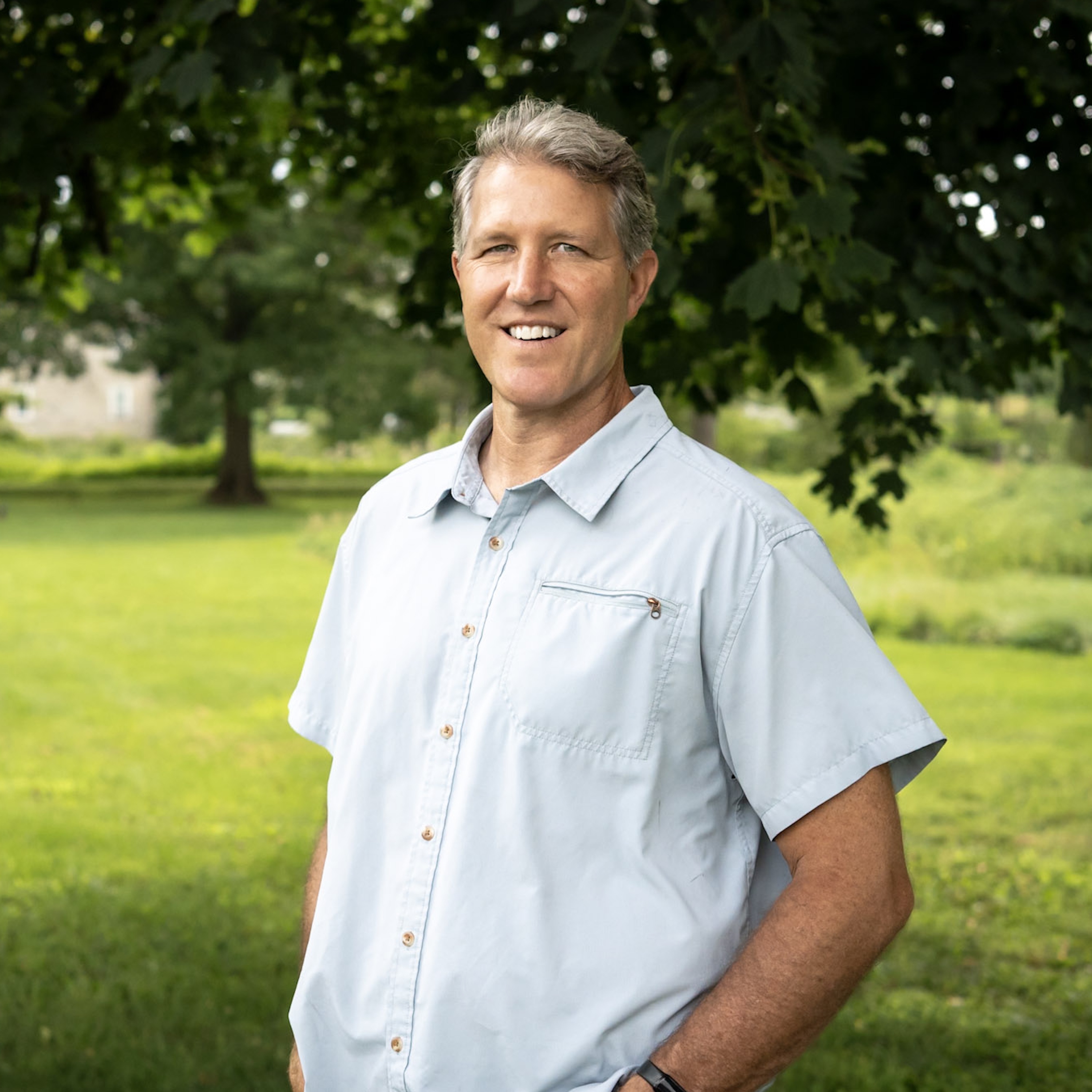



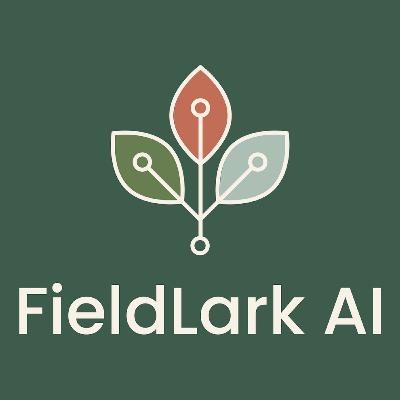
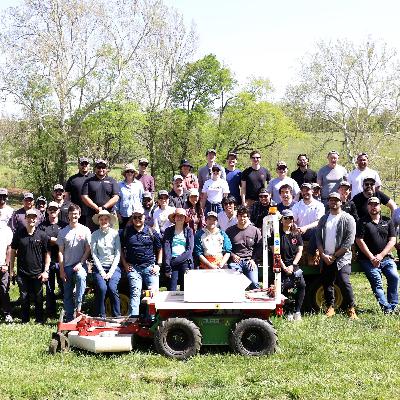
![[Tech-Enabled Advisor Series] Connecting Agronomy to Financial Strategy With Todd Kirwan [Tech-Enabled Advisor Series] Connecting Agronomy to Financial Strategy With Todd Kirwan](https://s3.castbox.fm/8d/71/eb/f64458d937d932e1d6f0670fe735ff5341_scaled_v1_400.jpg)
![[History of Agriculture] Norman Borlaug and the Green Revolution [History of Agriculture] Norman Borlaug and the Green Revolution](https://s3.castbox.fm/27/3b/dc/fadc9aaedc839b31bf2077a31b729e5142_scaled_v1_400.jpg)
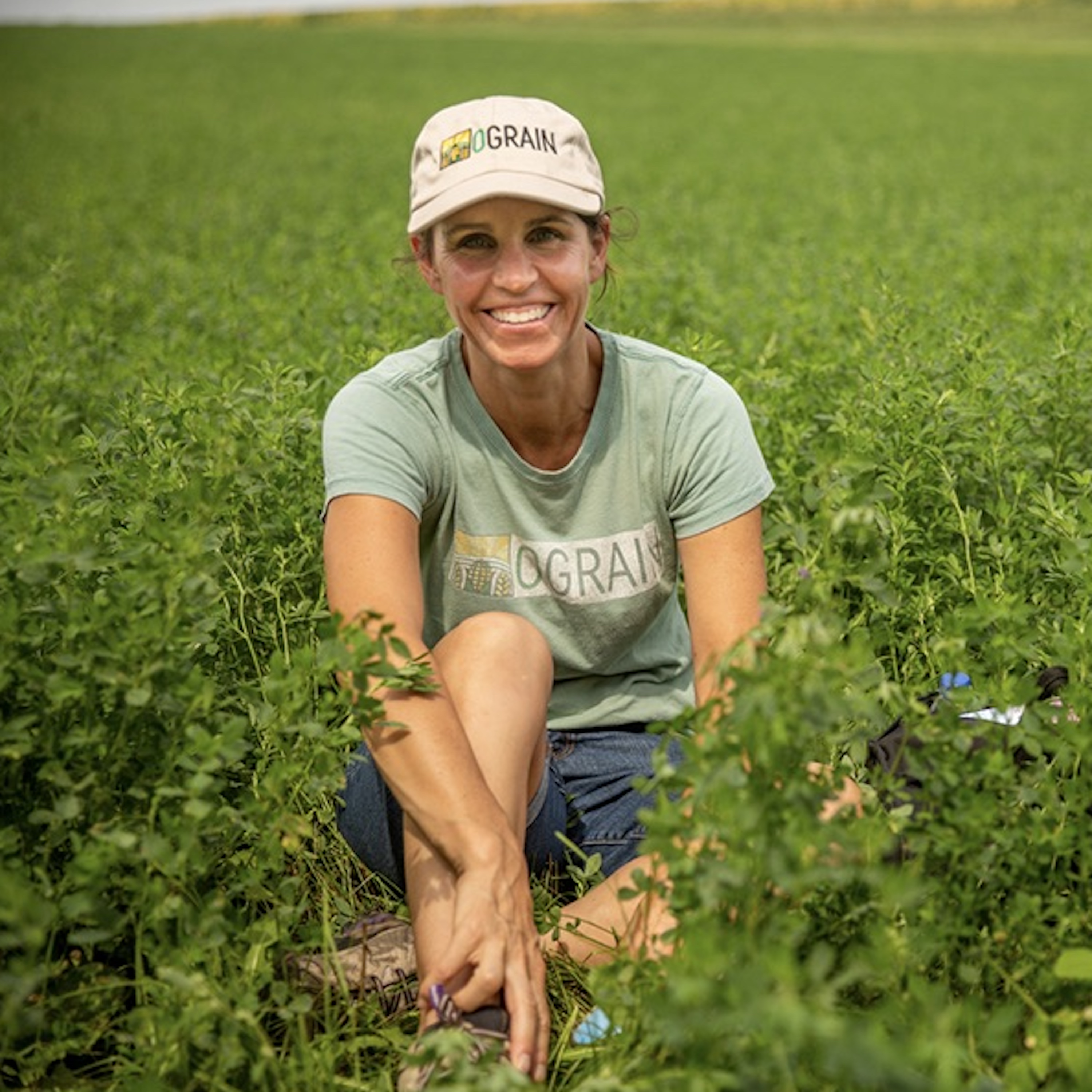
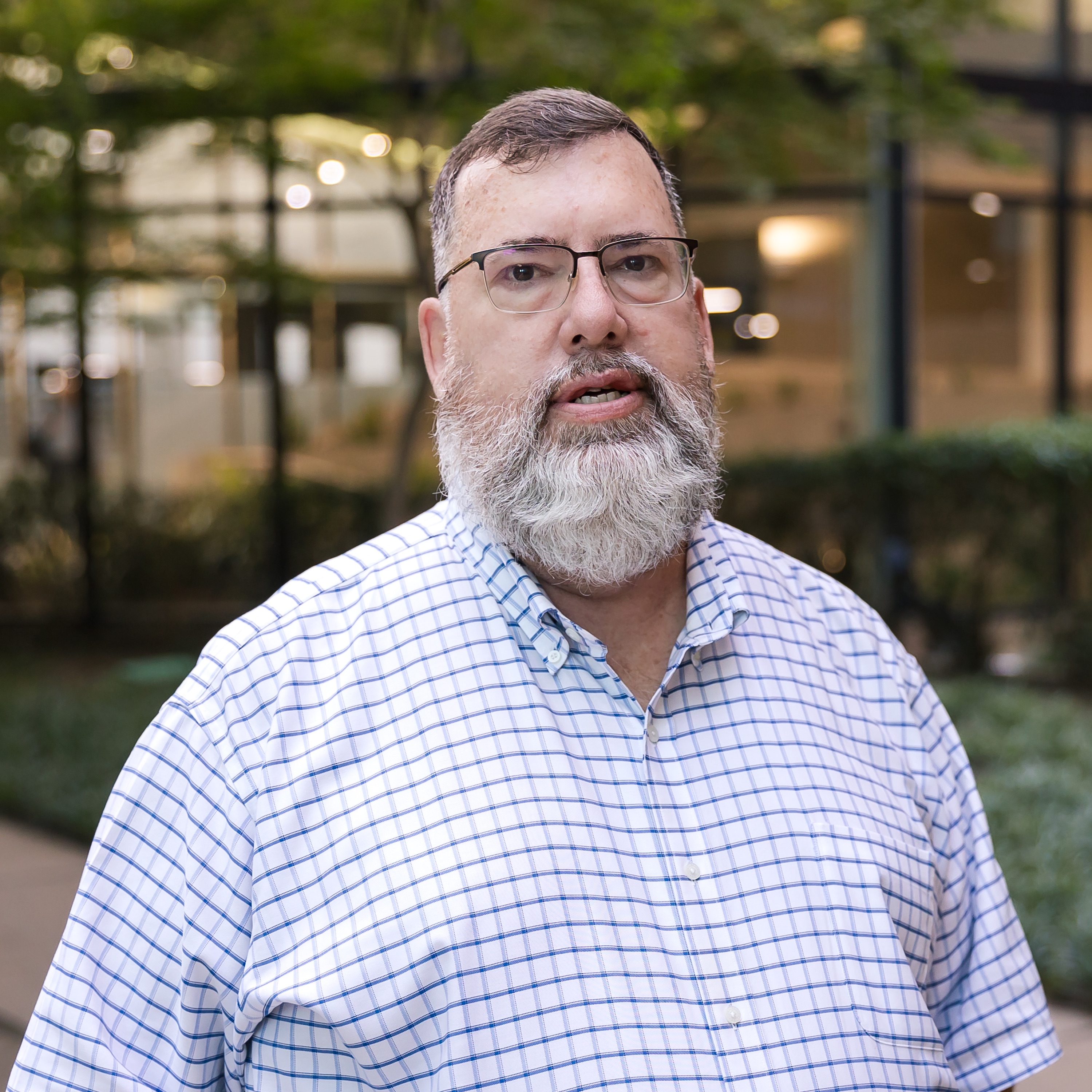
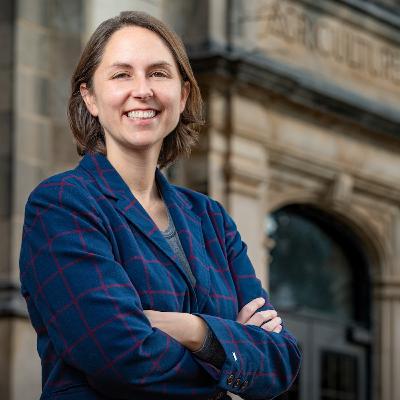
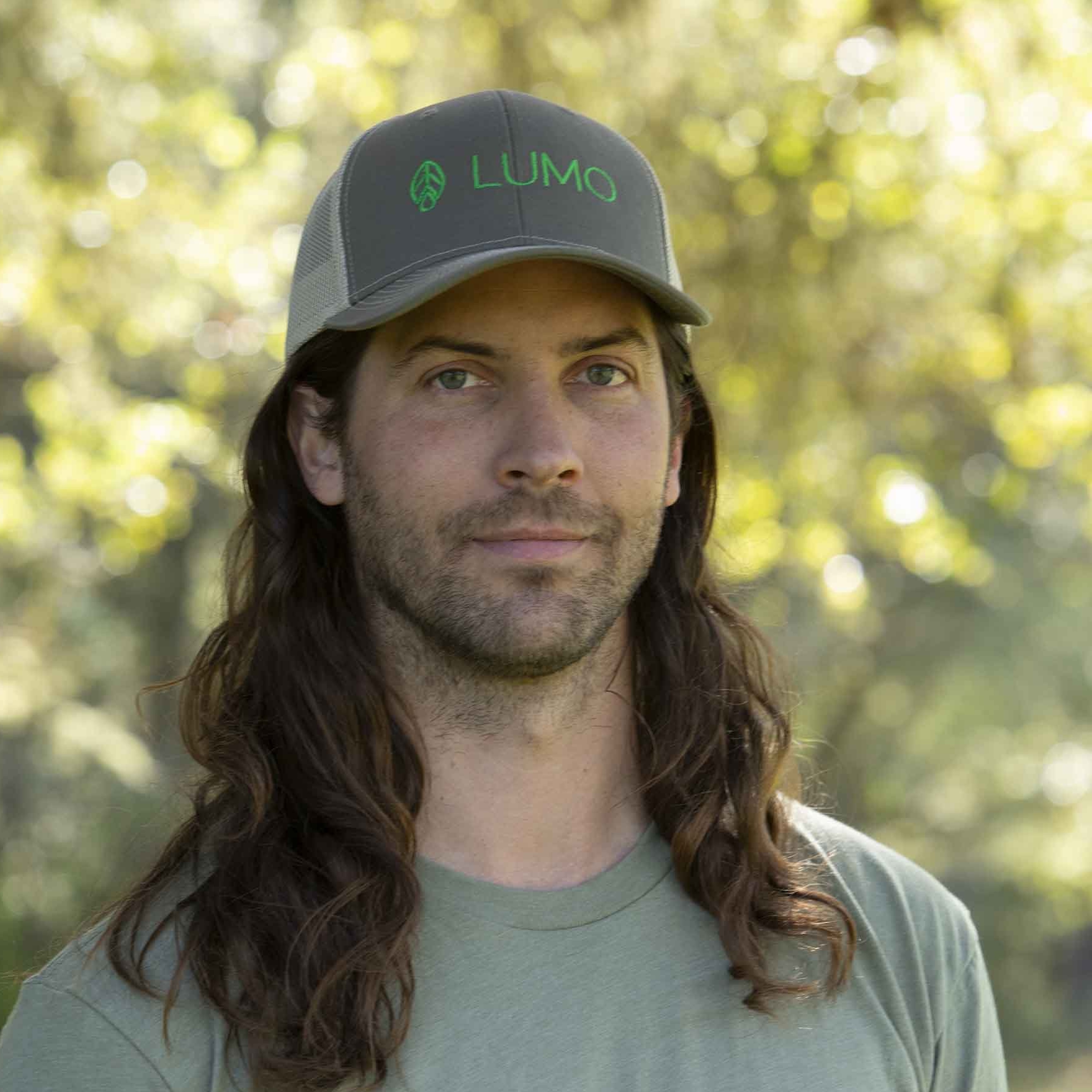

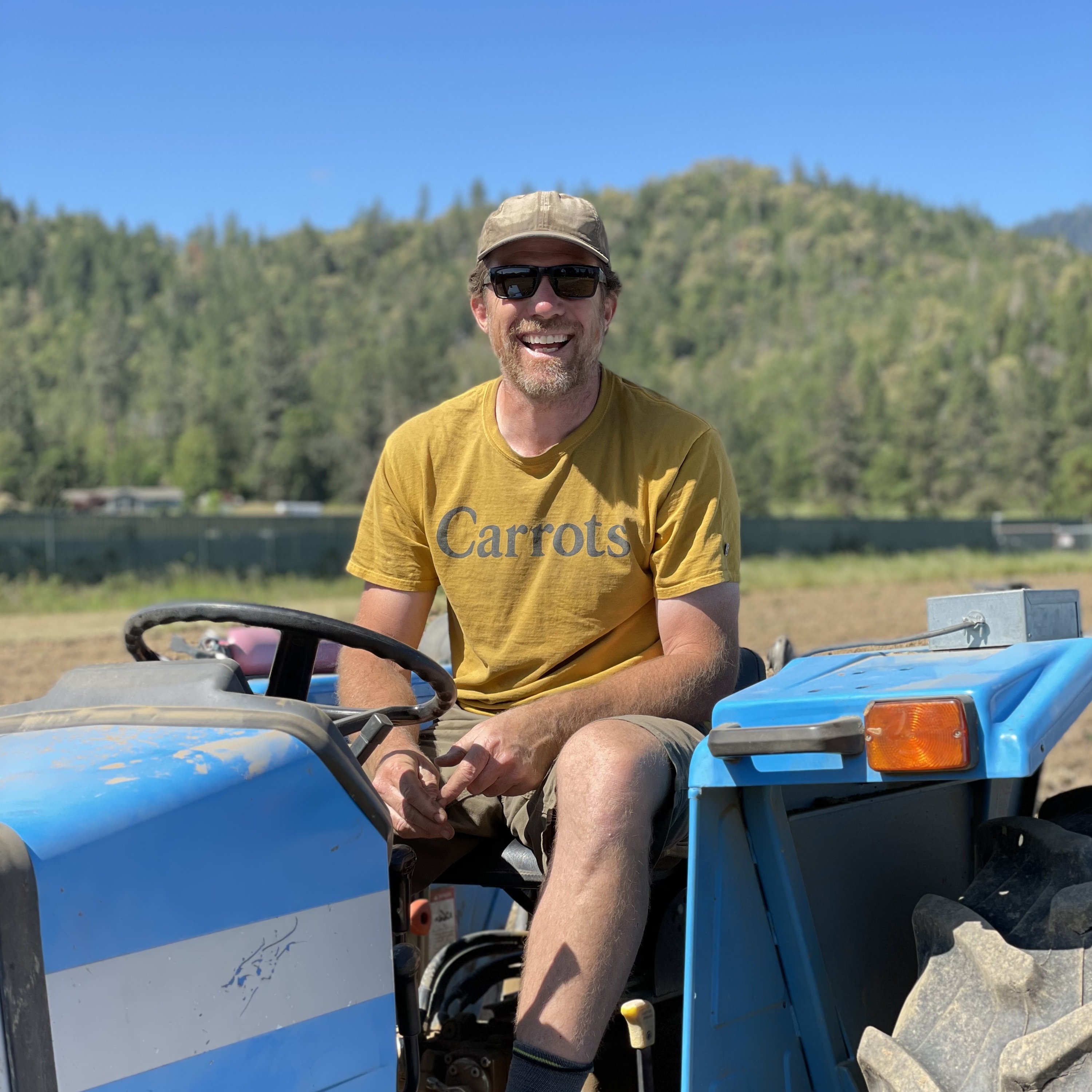
![[Tech-Enabled Advisor Series] The Business of Helping Farmers Spend Less [Tech-Enabled Advisor Series] The Business of Helping Farmers Spend Less](https://artwork.captivate.fm/c538e289-60be-4014-8813-773b2db7a21b/Nick-Einck-Headshot.jpeg)
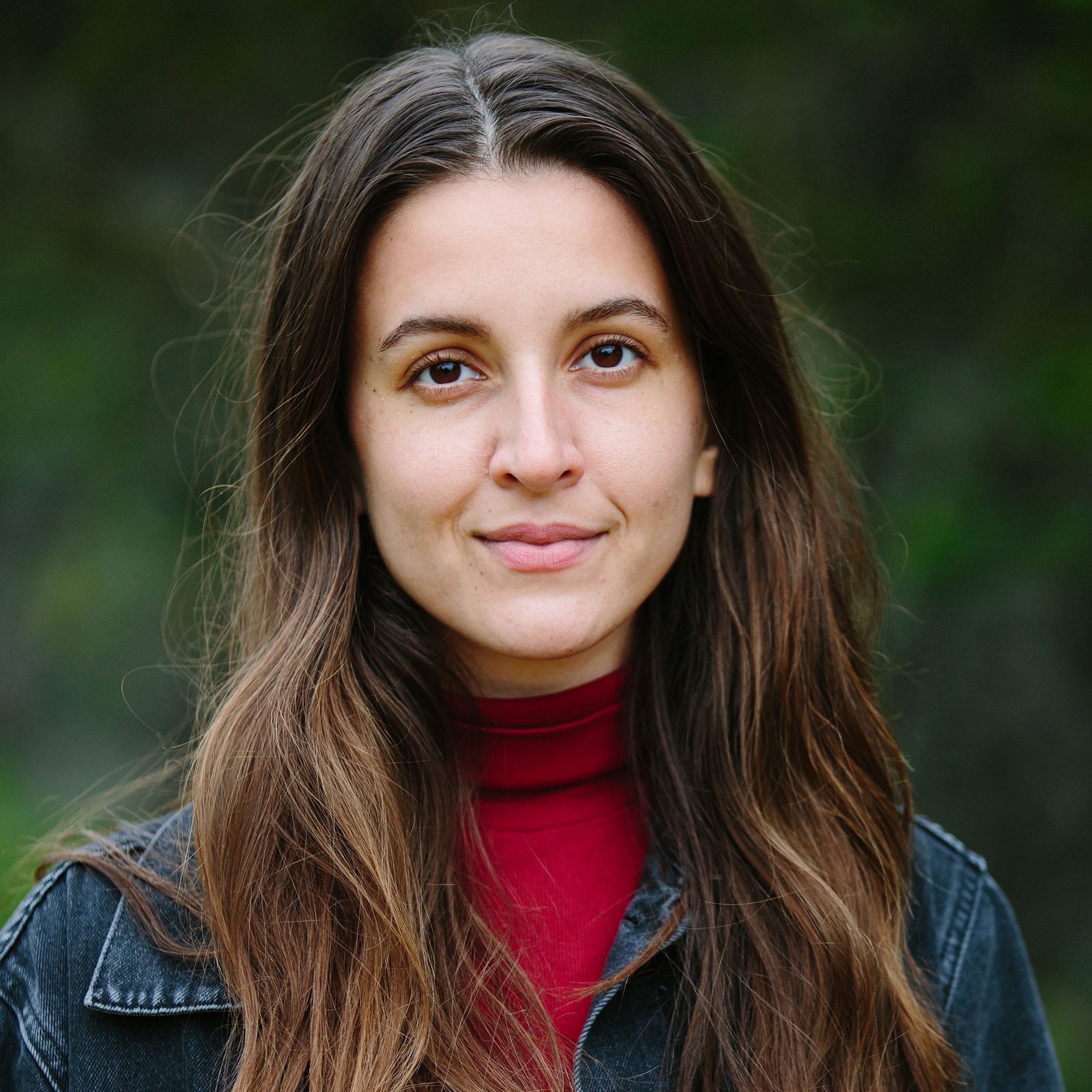
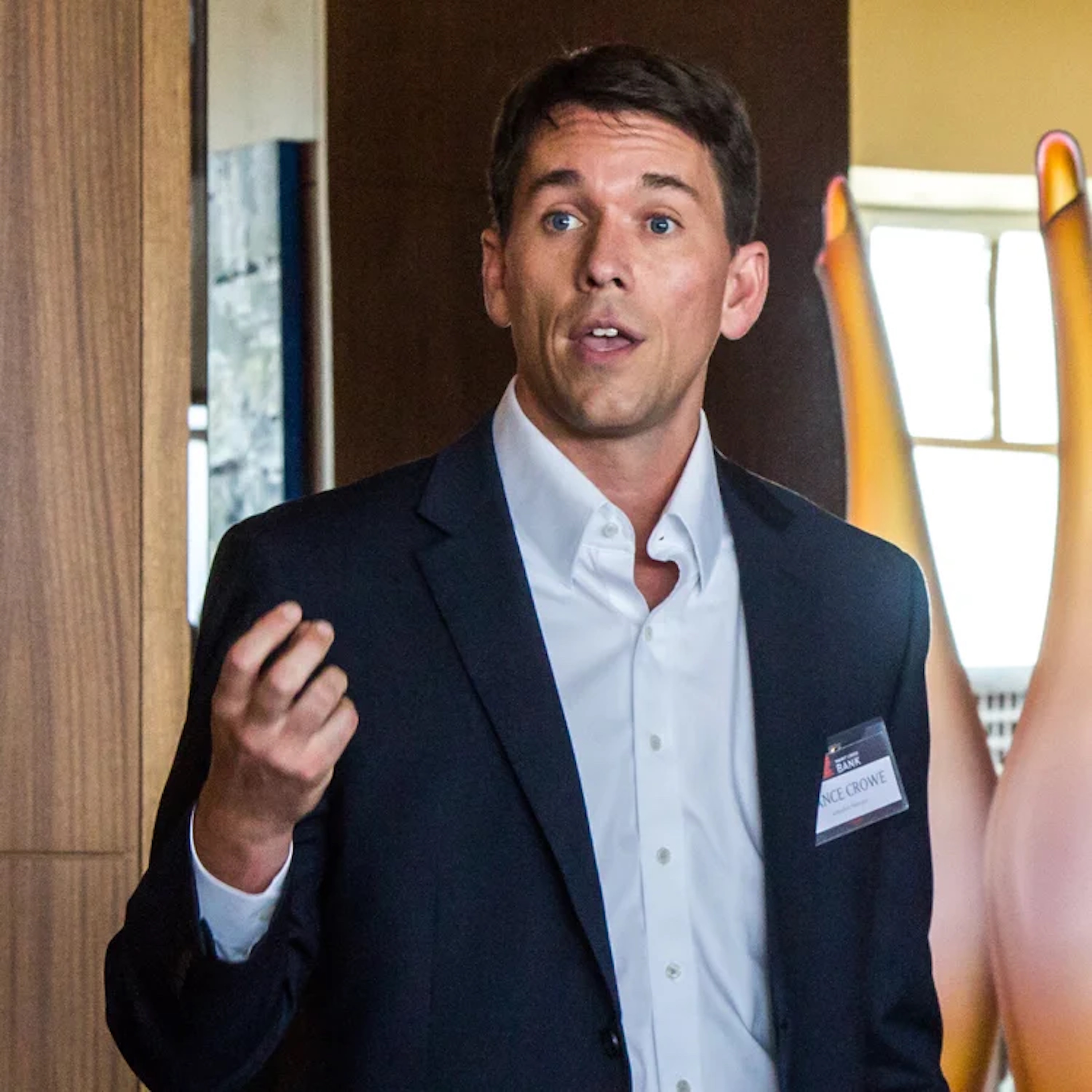
![[Tech-Enabled Advisor Series] Improving the Ag Retail Experience With Jason Weirich of MFA, Inc. [Tech-Enabled Advisor Series] Improving the Ag Retail Experience With Jason Weirich of MFA, Inc.](https://artwork.captivate.fm/bd84aac6-c3c5-475d-acb6-7490a82cd9d2/cdKmpmYapkk4hBYovHxYEvfW.jpeg)
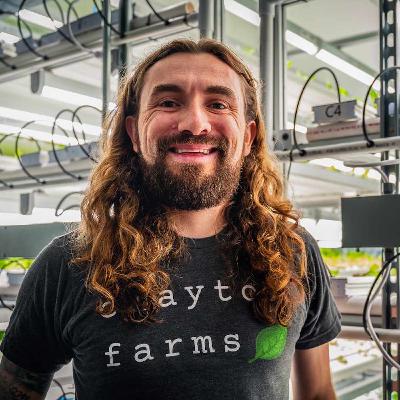



Really enjoyed this episode and learning about the history of soybeans in the USA.
Love the podcast Tim! Appreciate your efforts into making it relevant for a wide variety of audience by not just covering different stakeholders in the ag supply chain but also various geographies as well. I would especially like to call out the write-ups you provide for each episode. It helps me catch up on the relevant content if I get left behind. It would be great to have more coverage of south east Asia where farms are much smaller if possible. Thanks!
Amazing podcast! I've learned so much about the industry through this podcast. Especially like the urban agriculture and agri tech content.
Thanks for sharing about your "expert insecurity" I wrestle with this all the time. Great to know I'm not the only one and that actually the "student lens" is also valuable.
This is one of the most interesting episodes to date. Nice to hear about something other than corn and beans.
good point
Great podcast Tim, keep it up. Robert is a great speaker and incredible advocate for technology adoption in Agriculture. We need to foster smart dialogue with society at large!